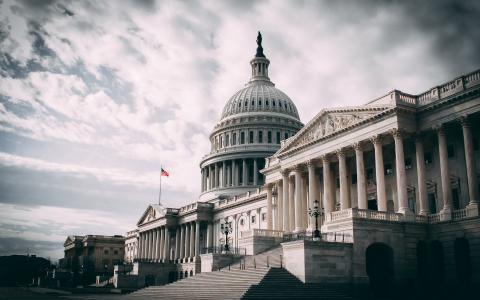
President Joe Biden last week previewed his sweeping $1.9 trillion stimulus package aimed at combating the coronavirus pandemic and the economic devastation left in its wake, but there’s no guarantee that the plan can pass Congress with every provision Biden is pushing for.
KEY FACTS
To be able to gather the bipartisan support he says he wants to pass the ambitious spending package, Biden will need to sell Republicans on provisions they are sure to oppose, especially another $350 billion in state and local aid and a $15 national minimum wage.
Sen. Mitt Romney (R-Utah), while not the firstRepublican in Congress to express reservations about Biden’s plan, told Bloomberg Wednesday that, given the $900 billion relief package signed into law by President Trump just after Christmas, he’s “not looking for a new program in the immediate future.”
Biden may also face delays caused by a Senate impeachment trial of former President Trump if that chamber is not able to split its time between the proceedings and other legislative business.
Punchbowl News’ Jake Sherman reportedWednesday that House Democrats don’t believe a comprehensive Covid-19 relief deal will be finalized until March.
In the meantime, Sherman reported, Democrats in the House are thinking about passing separate legislation next week that would allocate new money for vaccines and authorize another round of stimulus checks.
WHAT TO WATCH FOR
Within hours of his swearing in, Biden plans to issue a spate of executive orders, among them plans to deliver immediate financial relief to tens of millions of Americans by extending through September a pause on federal student loan payments and reinstating a federal eviction moratorium.
BIG NUMBER
$750 billion to $1.1 trillion. That’s the range analysts from investment giant Goldman Sachs expect the next round of federal stimulus legislation to be worth—in other words, at least $800 billion smaller than the plan Biden introduced last week. The analysts noted last week that they do not expect every part of Biden’s plan to pass and said they still see “considerable uncertainty” with regard to the final price tag.
KEY BACKGROUND
Biden’s plan includes another round of direct payments and a further enhancement of federal unemployment insurance, as well as $400 billion for efforts to fight the virus and $130 billion to help schools reopen.
CRUCIAL QUOTE
“It’s far from a foregone conclusion that these two bills can get passed looking anything like they will initially on paper,” Vital Knowledge founder Adam Crisafulli wrote last week, noting that conservative Democrats like Sen. Joe Manchin (D-W.Va.) could “force changes” given Democrats’ slim majority in the Senate. The particulars of which provisions can be passed under budget reconciliation rules by simple majority and which will need a normal vote with 60 senators signing on could also affect the contents of the final bill. Given Biden’s ambitious plans for trillions of dollars in infrastructure and green energy spending as part of the “Build Back Better” plan he plans to introduce next month, “Fiscal stimulus in 2021 will be massive (perhaps even larger than it was in 2020),” Crisafulli wrote, “but investors probably should temper some of their expectations.”
This article originally appeared on Forbes.



